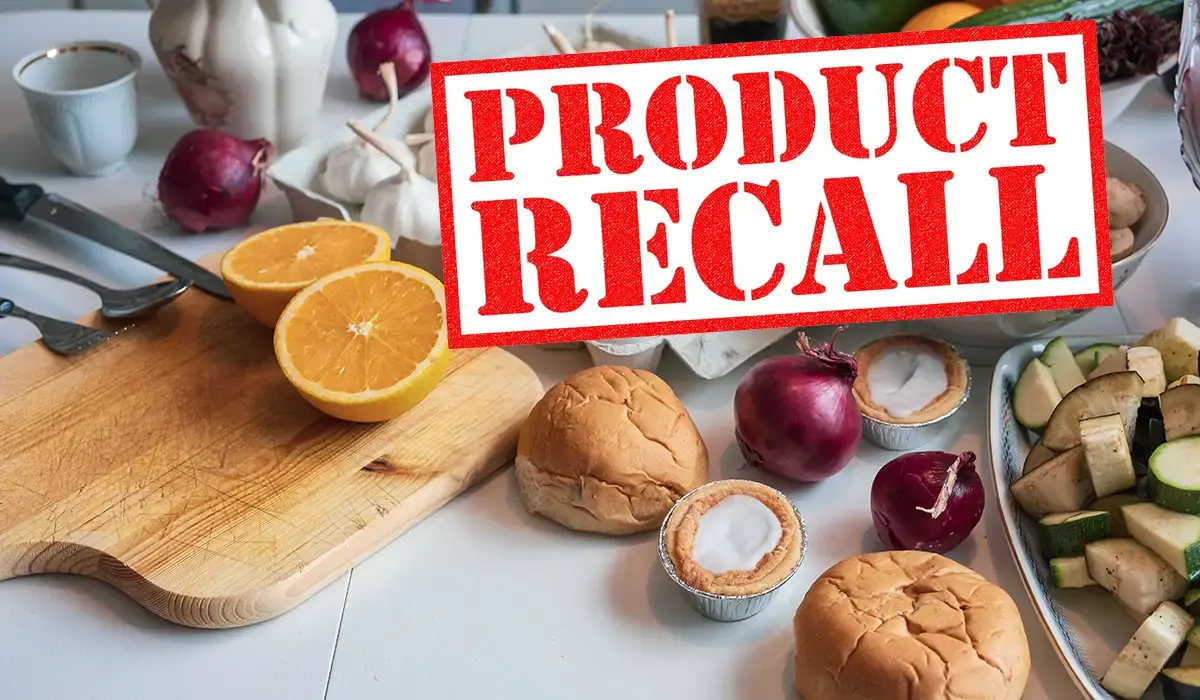Food & Nutrition
Why Are Food Recalls Increasing? Here’s What Experts Say

Food Recalls Expert Insight: What Parents Need to Know
Why Food Recalls Have Families Concerned
In recent weeks, food recalls have shaken American families and created concern across the country. Many items have triggered alerts. Frozen waffles, chicken nuggets, oatmeal, organic carrots, and even McDonald’s onions have all raised safety alarms. Most of these were precautionary, but unfortunately, some states still reported illnesses and even fatalities. This surge in concern has sparked renewed interest in expert perspectives on food safety. Food Recalls Expert Insight helps parents understand what they should know to protect their families.
According to a Gallup poll, confidence in the U.S. food supply has declined significantly since 2019. Many Americans are growing increasingly skeptical of food safety measures. Experts say that many of these concerns have surfaced due to more advanced testing and broader surveillance. But still, the numbers can feel alarming.
What Causes the Increase in Food Recalls?
Several experts believe better technology and stricter safety rules help detect food issues earlier than ever. Food Recalls Expert Insight confirms that improved surveillance leads to more recalls, not necessarily more danger.
Better Testing Means More Recalls
Darin Detwiler, PhD, food safety consultant and founder of Detwiler Consulting Group, explains that better science results in more recalls. He points to new sanitation regulations, rising global food distribution, and the demand for fresh foods as contributing factors.
Nicole Arnold, PhD, from The Ohio State University, emphasizes that recalls and outbreaks differ. Recalls remove potentially harmful food. Outbreaks occur when people become sick. Increased monitoring simply means scientists now catch issues earlier, which ultimately helps keep families safer.
Matthew D. Moore, professor at the University of Massachusetts Amherst, agrees. He mentions that pandemic-era lockdowns masked the issue. Once testing resumed post-COVID, more contaminants came to light.
Detecting More Does Not Mean Eating Is Riskier
“You find what you look for,” Arnold explains. In other words, researchers now catch dangers that previously went unnoticed. With the help of technology, food inspections have become more thorough. Food recalls reflect precaution, not panic.
The Real Risks of Eating Recalled Food
Unlike mold or rot, you can’t see listeria or E. coli with your eyes. The danger becomes obvious only after someone gets sick. Unfortunately, for some, the consequences are severe.
Understanding Listeria and E. Coli
Matthew Allen, food advisory expert at NSF, explains the symptoms. Listeria may cause muscle aches, nausea, or fever. E. coli can lead to vomiting and stomach cramps. In severe cases, these illnesses result in hospitalization or even death.
People at higher risk include pregnant individuals, seniors, kids, and those with weakened immune systems. Their bodies have a harder time fighting off infections.
Food Recalls Expert Insight on At-Risk Groups
Allen adds that a weakened immune system increases the risk significantly. This includes those with chronic illnesses or undergoing certain treatments. Taking extra precautions can help prevent complications from food borne diseases.
What to Do When a Product Gets Recalled
Hearing a product is recalled can be unsettling. However, panic is not necessary. Most recalls are issued before any illnesses happen.
Best Practices for Handling Recalled Food
Don’t eat the food—even if it looks or smells fine. Don’t donate it, feed it to pets, or open it. Bacteria and viruses are invisible. Just one bite can cause illness.
Check online to see what action the manufacturer recommends. Some products can be returned for refunds. Others should be discarded safely. Never take chances when health is at stake.
How to Keep Your Family Safe Every Day
You can take several everyday steps to reduce food risks at home. Experts offer multiple recommendations for food prep and storage.
Clean, Cook, and Watch Labels
Matthew Moore offers several smart safety tips. Wash your hands and cooking surfaces regularly. Cook meats thoroughly using a food thermometer. Also, be sure to wash fruits and vegetables before eating.
Produce poses unique risks because it is usually eaten raw. Without cooking, there is no kill step to remove pathogens. Though it’s not necessary to avoid raw produce entirely, it does require extra care.
Avoiding Cross-Contamination
One overlooked risk comes from mixing raw and cooked foods. Always use separate cutting boards and utensils for meat and vegetables. Also, refrigerate leftovers promptly and follow expiration dates.
Keeping your kitchen clean is just as important as following recipes. Regularly sanitize counters, handles, and frequently used appliances.
Stay Informed About Food Recalls
Awareness is key. Follow food recall alerts through government websites like FDA.gov and http://USDA.gov . These platforms offer updates, safety notices, and lists of affected products.
Use Technology to Track Food Alerts
Consider signing up for recall notifications. Apps and email alerts provide fast updates so you can take immediate action. Staying informed is the first line of defense against food borne illness.
Trust Experts and Science-Based Resources
Food Recalls Expert Insight encourages families to rely on science, not fear. Health organizations provide trustworthy guidance. By learning how food recalls work, families make smarter decisions without unnecessary worry.
Final Thoughts: Food Recalls Require Awareness, Not Fear
It’s normal to feel uneasy after hearing about food recalls. But understanding the science behind these events offers relief. Advanced testing, not increased danger, explains the growing numbers.
Keep in mind that Food Recalls Expert Insight aims to educate, not scare. Paying attention, practicing safe food handling, and staying informed can protect your family every day.
Explore more health safety news and parenting updates by visiting the rest of our website. Stay informed, stay safe, and stay empowered.












